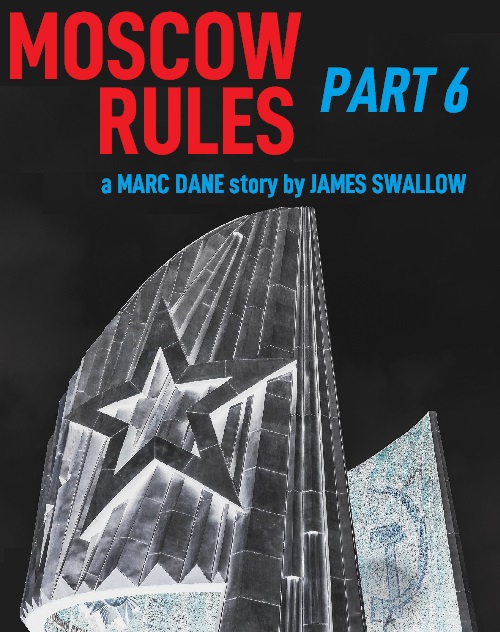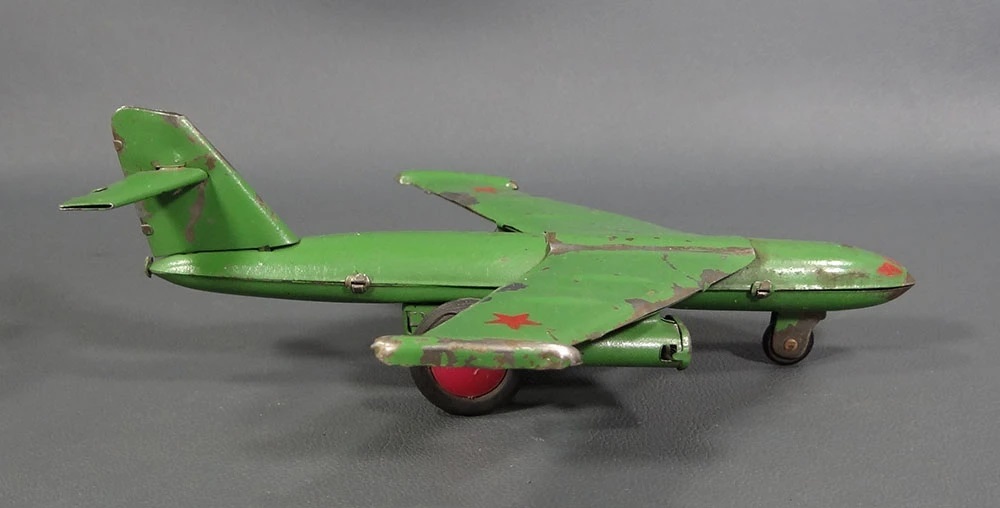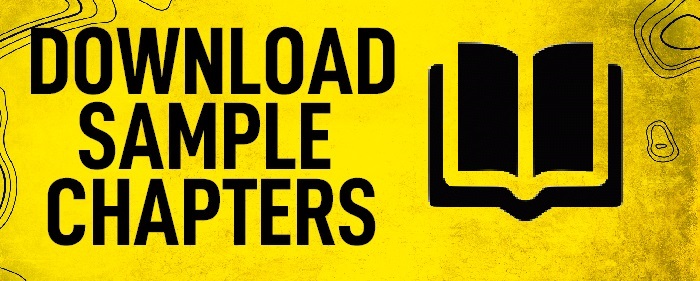Continuing MOSCOW RULES, a brand-new Marc Dane serial novella…

On a mission to fulfil a request for his employer on the streets of Moscow, Marc Dane finds himself dragged into a deadly scavenger hunt for a prize that could cause chaos in the wrong hands…
In Part 5, Marc was forced to improvise an escape and evasion in the middle of a busy train station, as mercenaries closed in on him; and along the way he begins to suspect the origins of the hunters on his trail…
Read on for Part 6 of MOSCOW RULES; future chapters will be released via this blog, but you can sign up for early access via the James Swallow Reader’s Club at this link, or type your email address in the box at the bottom of this page.
MOSCOW RULES part 6 – VARY YOUR PATTERN AND STAY WITHIN YOUR COVER
Marc left the metro at Sportivnaya and bought a chocolate bar from a vending machine in the ticket hall, popping a chunk into his mouth and discarding the rest in a rubbish bin. He sheathed the mercenary’s stolen sat-phone in the tin foil the chocolate had come wrapped in, gambling that it would be enough to attenuate any tracking signal the device might let out. He wasn’t ready to dispose of it just yet.
A street map at the entrance gave him the directions to his destination, to the side-road address Marc had pulled from the hidden message in the gift tag on Morozov’s vodka bottle.
How much more of this treasure hunt is there to go? The question rolled around his thoughts as he crossed the road, avoiding cars that paid no heed to pedestrians as they splashed through pools of murky slush. The cold was crowding in around him, and he felt it seeping through the material of his thermal hoodie. He didn’t relish the idea of staying out all night, but it was looking more and more like that was the way things were going.
The phone in his pocket vibrated and for a second Marc thought it was the stolen one – but no, it was the other one, his custom Rubicon-issue handset. He peeled a flexible Bluetooth bead from a socket on the back of the case and inserted it into his ear. “Go for Dane.”
“You okay?” Lucy Keyes sounded tired. He wondered about the time of day wherever she was. “Clear to talk?”
Marc glanced around, finding no obvious signs of any followers. “Clear,” he repeated. “Glad you called. I’ve got new intel.”
“Same here,” she told him. Beneath her voice, he heard the metallic hiss and echo of satellite encryption software working to shroud their conversation from unwanted eavesdroppers. “So, Kara put names to those faces you saw at Morozov’s funeral, the merc meat-heads.”
“They work for Aleph.”
“That a lucky guess, or did you figure it out on your own?”
“No,” he admitted, “I paid someone to nick one of their phones, had a poke around.”
“The pro-active approach,” Lucy said approvingly, “I like it. Just don’t get out of your depth.”
“Too late for that.” The wind along the avenue was cutting, so Marc ducked into the doorway of a shuttered clothing store, cupping his ear to block out the noise of passing traffic. He gave the quick version of how he’d acquired the phone and the data he’d mined from it. “Belongs to a guy called Yevgeny,” he concluded. “A couple of hours ago he tried to break my neck.”
Lucy gave a grunt of agreement. “Yevgeny Borodin,” she explained, reading off the information Kara Wei had found in her digital trawling. “Former Chechen special forces grunt, recruited seven years ago by the Aleph private military contracting group, turns up a bunch of times in Africa in dubious places, then gets promoted into the PMC’s counter-terrorist unit. Which appears to be the cover for Aleph’s ‘Dirty Deeds Done Quick’ team.”
“What about his mate? Got anything on him?”
“Less, but enough to know he’s the same breed of charmless shit-heel. Name’s Avgar Dova, Latvian, ex-cop with a murky background and what seem to be cash-based loyalties. Discharged from the State Police in 2019 for undisclosed reasons, but reading between the lines… Probably corruption.” She paused. “Marc, if Aleph have men in Moscow on the trail of Morozov’s ledger, it’s likely somebody with deep pockets and a lot of influence is paying them.”
“Yeah, no doubt.” He walked in a small circle, arms tight against his chest to keep warm. “You know how they work. Pour money in one end, bullets and trouble come out the other.” Marc and his team-mates had gone toe-to-toe with the Aleph PMC far too often for his liking, from kinetic actions in Monaco to a prison break in Poland, and worse. Contact with these mercenaries always ended in a hail of gunfire. Their whole modus operandi centred around one core tenet – solve every problem with violence.
Aleph were a hammer in a world full of glass, armed and dangerous at all times, better suited to deployment into a war zone than on the streets of a peacetime city. Marc found himself watching Muscovites going about their business as they walked past him, heading home to ordinary lives, to their homes and their families. Aleph operatives wouldn’t hesitate to run any one of them down to reach their objectives, it was how they were trained. They were callous and singular in focus.
He told Lucy about the dead watcher posted outside his hotel. “That’s got to be them,” he said. “No-one else would have the balls to gut an FSB agent on their own turf.”
“Could be they’re sending a message.”
“Back off, the ledger belongs to us.” Marc considered that. “The FSB won’t go for it.” He thought about Melor Rykov, and the dismissive way the senior Russian espionage officer had dealt with him earlier in the day. There was no misunderstanding; the FSB and the Russian State Security organs considered Sergei Morozov’s missing ledger to be their property. The old spymaster hadn’t even been in the ground for a day, and the fight for the dead man’s legacy was heating up.
Lucy went on. “Whoever gets their hands on that ledger will have the intelligence payday of a lifetime. Decades of KGB and FSB influence material on dozens of subjects? It’s a blackmail motherlode.”
“Rykov gets it, he’ll bury what he can’t use, and exploit the rest,” said Marc. “Maybe that makes the Russian government implode a little quicker, who knows?”
“And our mysterious Player Two? What if it’s another nation-state bankrolling Aleph’s gun-thugs? North Korea, China? Hell, maybe even the US? Either way, it doesn’t end well.”
“We don’t even know what’s in the bloody thing,” Marc said, thinking it through. “Morozov was the only one who did, and he’s not talking.”
“Maybe he is,” Lucy offered. “In a way. His wife said he wanted Solomon to have the files. If we get that paper, we can use it to make a difference.”
Marc was silent for a moment. He wasn’t sure how they would make something like that work, but the alternative was grim. In the wrong hands, the contents of Morozov’s ledger could be more destructive than a nuclear weapon.
Find it first, he told himself. Deal with the big picture later.
“Tell Kara to keep digging, see if she can get anything about who’s employing Aleph, any clue at all,” Marc told Lucy. “In the meantime, I’ll stay on the trail. I’ve got another location… Maybe there’ll finally be some solid answers there.”
“Morozov sure liked his games,” she said ruefully. “So don’t overplay the hand you’re dealt. You lose here, you’re done, and we can’t come get you.”
“Good pep talk, cheers,” Marc replied dryly, stepping back on to the street. “I’ll check in again in a few hours.” He cut the line, securing the ear-bead and phone, striding on as casually as the hard chill and the beginnings of another snowstorm pushed down on him.
The invisible-ink address turned out to be a grubby, hole-in-the-wall café sandwiched between a shop selling imported washing machines and the entrance to a skinny apartment block. It sat off the main road in the mouth of an alleyway, half-concealed from passing traffic by a quirk of design. It was a good spot for a meet, Marc decided, where you could make a brush pass or a dead drop without being seen by someone in a car out on the road. Old school tradecraft once again, he thought.
The café’s owner was an aging guy with a sour face and the kind of hardy build Marc had only ever seen on farmhands and rugby players. He could have been anything from sixty to ninety, his expression set in a lined scowl that deepened as Marc approached.
The owner was in the process of pulling a dented metal roller door down over the front window, and he spat gutter Russian at the new arrival, something in not-uncertain terms about closing up for the night.
“Sir, I just need one minute,” Marc began, as he fished for the right pronunciation. His basic Russian was slow and laboured.
“Fugg off.” That came in accented English, the meaning abundantly clear.
Marc sighed and tried a different approach, offering the man the tag from the vodka bottle and a folded $100 bill. The money persuaded the man to reconsider, but it was the tag that changed his mind. He studied it in detail, running a finger over the words revealed there.
For a moment, the scowl faded, replaced by something else, something unreadable. Then the money vanished into a pocket and Marc was ushered inside, the old man craning his neck to look out toward the street before he followed him in.
“You come,” he said, before going behind the narrow counter. He dropped out of sight, down through a sliding hatch in the tiled floor that led to a basement level.
Marc picked his way around stacked chairs and folding tables, and descended in the old man’s wake. The basement was a musty box built from slabs of poured concrete, lit by a naked white bulb hanging off a low ceiling. Every corner was filled with skeletal metal shelves piled with cans of coffee, crates of food and cartons of cigarettes, and he had to turn sideways on just to get past them. He could hear the rumble of cars passing on the road overhead.
As Marc watched, the old man leaned his weight against a humming refrigerator in a shadowed corner and it moved on hidden castors, revealing a series of stainless steel deposit boxes, identical to the kind in any large scale bank. None of the boxes had identifying numbers, but that didn’t seem to matter. The old man counted down and across, producing a brass key from out of nowhere. He jammed it into a lock, then left without comment.
Marc waited until he heard the man’s footsteps rise up the stairs before turning the key. The panel for the lockbox opened easily, silently. Despite the shabby decrepitude of everything else in the basement, this secret store was being well maintained.
A covert bank? Marc was aware of operations like this, secure sites run by espionage agencies for use by officers under cover in non-permissive environments – but those were usually operated by the opposite side. Is this another of Morozov’s games? Running his own actions and his own infrastructure right here in Moscow, right under the nose of the state security service?
A nearby shelf held a dusty crate of tourist souvenirs, sets of wooden matryoskha dolls, each one nested within the other – and the irony of the comparison wasn’t lost on Marc.
He reached inside the deposit box, acutely aware that events were repeating themselves – first the hidden space in in the safe house and now this – and his fingertips brushed something the size of his fist.
Marc drew out the item that Morozov had left there. A cardboard box, printed with brightly coloured graphics in the style of 1960s Soviet propaganda art, showing a bold Russian aviator gesturing toward a bright future. The figure stood beside a sleek, missile-like aircraft, a delta-winged supersonic bomber.
Inside the box was a toy version of the same jet, made from shaped tin-plate, painted green with bright crimson stars on its wings, fitted with a bulky friction motor on the belly that ruined the otherwise airstream lines. A string of letters in Cyrillic were pressed into the metal fuselage of the toy but other than that, there were no makers marks on it. Nothing to indicate what it was supposed to signify.

Marc felt around inside the deposit box and came up empty. He peeled apart the toy’s packaging, sniffing at it for that now-familiar smell of onion oil, and found nothing. With a sigh, he ran his hand over the toy’s wheels and the friction drive crackled, sparks flickering in the jet’s exhaust. He had to think carefully to translate the embossed letters, tracing them with a finger, and the word they formed rang a distant bell in his thoughts.
“Monino.” It was a place-name, somewhere Marc had heard of before, but he couldn’t connect it up with anything definite.
He sighed and leaned back against the wall, and the fatigue he’d been outrunning all day crept up on him. Marc was cold, stressed, and his stomach was growling, but more than that he was pissed off. Morozov was playing his games from beyond the grave, making everyone jump through his hoops, and for what?
Some ghost file that no-one had ever actually seen? He was starting to wonder if this was some elaborate trick, one final screw-you to the people Morozov had left behind.
“You up there laughing at us, Sergei?” Marc threw a look toward the heavens, but then he recalled that after all the unpleasant things Morozov had done in his life, if anything, he’d have gone to the other place.
For a moment Marc nursed an impulse to stamp the little plane into bits under his heel and end the dead man’s fun right here and now. But then he blew out a breath and slipped the toy into his pocket, next to the foil-wrapped slab of the merc’s stolen phone. If this was a joke, he’d have to follow it right to the bitter punchline to be certain.
Monino. The old geezer upstairs might know what or where it is. Marc closed up the safe box and pushed the fridge back into place, then made his way back toward the rickety staircase that led up to the café.
As he reached the bottom of the stairs, Marc heard voices, the old man’s among them. At first he couldn’t hear the words, but the tone told him everything. He heard fear and desperation masked by defiance. Marc retreated into the shadows, listening carefully as the new arrivals menaced the old man.
The next sound was a distinctive and familiar one – the oiled click of a gun’s hammer being drawn back.
“Where is the Englishman?” The question came from a voice that Marc had heard earlier that day as he spent a brief taxi ride in the custody of the FSB, a hard and growling cadence more suited to an angry dog than a person. “Reveal him,” Gurik told the old man, “or I shall shoot you in the belly, and we will watch you bleed to death.”


